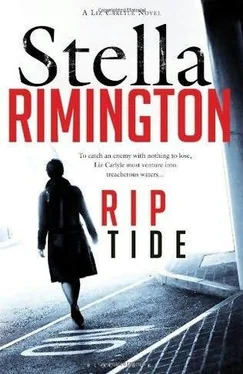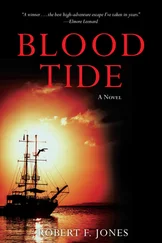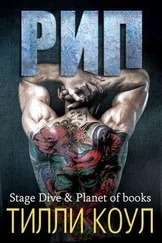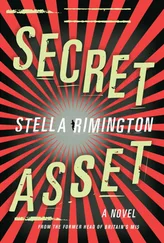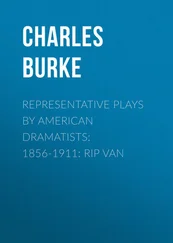But Geoffrey Fane was a much more complex character. Fane positively enjoyed disputes, though he was always sure he was right. He liked to watch Liz getting angry when he did something to annoy her. She knew that and therefore tried always to keep her temper. But it was difficult to do when she found him out, as had often happened, in some outrageous piece of double-dealing or concealment. He would show enough grace to apologise, though she always felt that even then he was secretly enjoying his own cleverness.
Fane leaned back in his chair and crossed one flannelled leg over the other. ‘Do you know anything about the ship the pirates tried to hijack?’ he asked.
‘No.’ Liz immediately felt cross with herself, since she hadn’t pursued that angle of the investigation at all. She made a mental note to ask Peggy to look into it. ‘I know the ship is called the Aristides.’
‘That’s right,’ said Fane approvingly. Again, she felt as if she were being patted on the head. ‘It was leased by a charity called UCSO. Quite coincidentally, I had a call from the charity’s director, a chap named Blakey. Used to be one of us – Head of Station in Hong Kong for a good while. He’s based here in London, though UCSO also have an office in Athens.’
Liz’s antennae were vibrating now. ‘Did he say anything about the hijack attempt?’
‘He mentioned it,’ said Fane airily. Something in the tone of his voice struck her as suspicious. She knew he was holding something back. Then he said, ‘Tell you what: let me have another word with him. It could be that the hijack attempt and the fact the ship was an UCSO one are connected. If they are, we’ll need to liaise closely.’ He looked at her and smiled. ‘You’ll enjoy that, Elizabeth. We work well together.’
There was no need for introductions. Liz could recognise a Special Branch officer in the dark. DI Fontana clearly felt the same about MI5 officers; he strode up to her as she walked towards the end of the platform at Birmingham New Street station and greeted her with a handshake. ‘Liz Carlyle,’ he said. ‘Pleased to meet you.’
He was tall, lean, athletic-looking – and disconcertingly blond, thought Liz, given his Italian surname. They walked towards his car, which was parked on a double yellow line outside the station.
‘You sound as if you’ve lived here all your life.’
‘I’m third-generation Brummie. My grandfather came over from Italy in the thirties; he couldn’t be doing with Mussolini. He made his living selling ice cream from a van – a real Eyetie,’ the DI said with a grin. ‘Then he married an English woman.’ He raked a hand through his blond hair. ‘That’s how I got this.’
‘Tell me about the Khans.’
‘I started as a beat policeman, and for a few years I was stationed in Sparkhill. That’s when I got to know them. I used to stop in at one of their shops sometimes – you know, for a chat and a quick cup of tea. Shopkeepers like to keep in touch with the local bobby and they always seem to know what’s going on in their neighbourhood. It’s a two-way process. Not that I’d say I know them well… not nowadays anyway.’
‘Do they have other children?’
‘Lots. Amir must have six or seven brothers and sisters. I could never keep track of them all, though I do remember him as a little boy. He’s the youngest – unless his mum’s had any more since then, but she’s getting a bit long in the tooth now. She doted on Amir. Mr Khan was very strict with all the kids; too strict, I’d say.’
Not a good combination, thought Liz. It would have made the boy keen to cut his mother’s apron strings as well as want to rebel against his father.
Fontana went on, ‘When I first knew them the family had two corner shops; now they must own a dozen. One of them’s a small supermarket.’
‘So Mr Khan’s done well.’
‘The whole family has,’ Fontana said. ‘It’s a team effort. The kids are put to work in the shops pretty much when they start school. God knows how many child labour laws their father’s broken. Still, he’s a classic Asian success story. It’s a pity it hasn’t rubbed off on the next generation.’
‘What do you think happened?’
‘With Amir?’ said Fontana, glancing over at her as he stopped at traffic lights. They’d reached the Stratford Road, an urban High Street with residential streets running off it like spokes.
The lights changed. Fontana pointed ahead towards a park on their right: acres of grass ringed by tall weeping birches, only now fully leafing. ‘That’s Springfield Park,’ he said, and Liz wondered why he wasn’t answering her question. ‘In a way, it’s a symbol of what’s happened to parts of the Asian community here. One of the Royals is supposed to come at the end of the summer to dedicate a new playground. Yet the older generation – Mr Khan, for example – never set foot in the place. They’re too busy running and expanding their businesses, completely focused on financial success.
‘They want success for their kids too, but they want them to become professionals. They drive them hard to do well at school; they’ve got to be top of the class, go to uni, become doctors or lawyers. But at home the likes of Mr Khan still cling to the more traditional Pakistani way of life: his wife stays in the house; he arranges marriages for his daughters; socially they only mix within the Pakistani community. It’s not surprising that some of the next generation rebel. They meet people at school who have a very different way of life, and they want some of it too. So they conform at home, but when they get the chance they’ll be hanging out in the park, smoking and drinking, and going to watch American films.’
‘So how does someone like Amir end up in Somalia?’
Fontana had clearly thought about this before. He said, ‘I think they go through a sort of identity crisis. All this Western culture is only skin-deep with them; a lot of these kids don’t feel they can ever truly be English, and once they realise that, they feel alienated both from their parents and from this country and Western culture as a whole. Most of them don’t share the same work ethic as their parents; without that, they’re very vulnerable to the concept of a cause. Enter the extremist imams.’
They turned off the Stratford Road, on to a residential avenue that led gently uphill. ‘This used to be all Irish a century ago,’ said Fontana. ‘Then after the war immigrants from the Caribbean lived here. But for the last thirty years it’s been Asian. Lots of small businesses – people like the Khans, just trying to get ahead.’
He turned the car again, and they drove up a street of small Victorian terraced houses with little front gardens behind low walls. The street looked to be in good order – the houses freshly painted, the windows clean, dustbins neatly lined up in the front gardens – but when Fontana pulled over to park outside a house in the middle of the terrace, Liz was surprised.
He saw her expression and laughed. ‘Don’t be fooled. Mr Khan could buy half this street, but it’s not his style. He’d never want to leave this neighbourhood – most of his extended family live within a quarter of a mile of here, and all his friends. You’ll never find him in a mock-Tudor villa out in the suburbs.’
Fontana’s knock on the half-glazed front door was answered by a small fierce-looking man, who seemed to be in his sixties. His hair was white, and his black, sharply trimmed moustache was speckled with grey. His self-important demeanour made it clear that he was the lord of this particular manor.
‘Hello, Mr Khan, very nice to see you again. This is Miss Forrester from the Home Office. I told you she’d be coming along.’
Читать дальше
